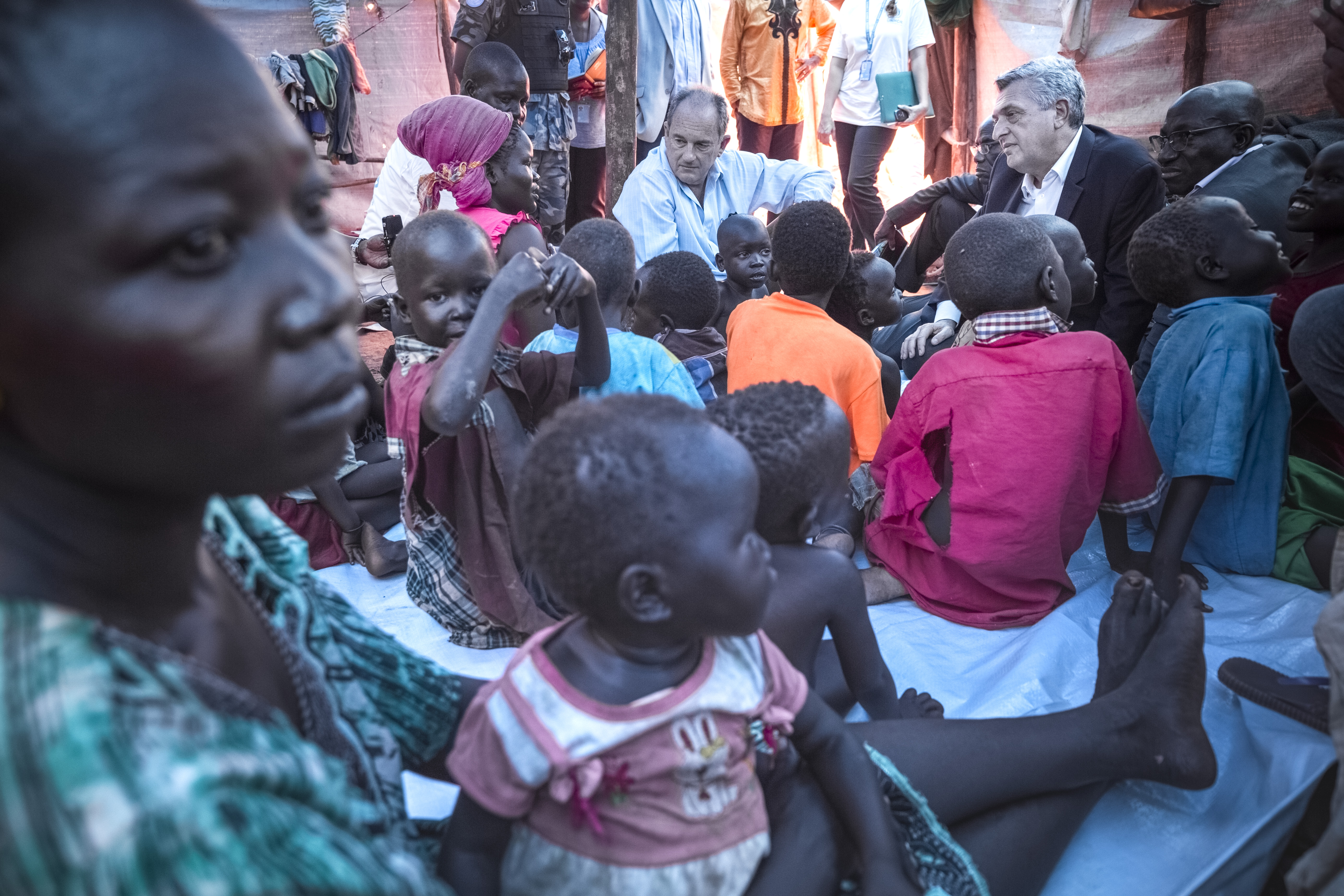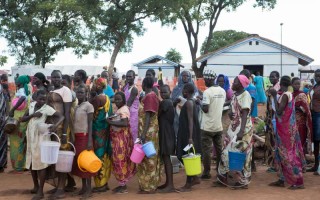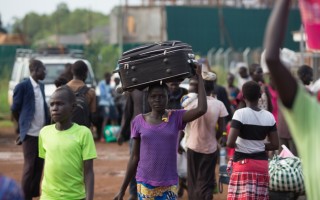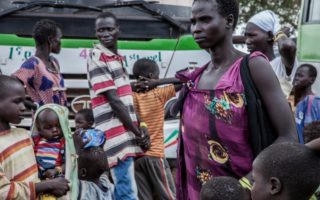
Women and children talk with United Nations High Commissioner for Refugees Filippo Grandi and the head of the UN’s peacekeeping mission in South Sudan, David Shearer at POC3 camp for internally displaced persons in Juba.
Joint statement on behalf of the Government of Uganda and UNHCR
The Government of Uganda and UN High Commissioner for Refugees Filippo Grandi today jointly appealed to the international community for urgent and massive support for the thousands of South Sudan refugees who continue to arrive to Uganda every day, fleeing brutal conflict, compounded by the limited availability of food.
Uganda currently hosts more than 800,000 South Sudanese refugees. Among them are some 572,000 new arrivals who have poured into Uganda in desperate need of safety and help since 8 July 2016. With present rates of arrival, that figure will surpass a million before mid- 2017. This year alone, more than 172,000 South Sudanese refugees have fled to Uganda, with new arrivals in March averaging more than 2,800 daily.
“Uganda has continued to maintain open borders,” said Rt. Hon. Ruhakana Rugunda, Prime Minister of Uganda. “But this unprecedented mass influx is placing enormous strain on our public services and local infrastructure. We continue to welcome our neighbours in their time of need but we urgently need the international community to assist as the situation is becoming increasingly critical.”
“We are at breaking point. Uganda cannot handle Africa’s largest refugee crisis alone,” said UN High Commissioner for Refugees Filippo Grandi. “The lack of international attention to the suffering of the South Sudanese people is failing some of the most vulnerable people in the world when they most desperately need our help.”
Chronic and severe underfunding has reached a point where critical life-saving help risks becoming dangerously compromised. Transit and reception facilities are rapidly becoming overwhelmed. Significant challenges are being faced in providing refugees with adequate food rations, health and educational services, and sufficient clean water; a dire situation further compounded by the onset of heavy rains. Currently, UNHCR urgently needs more than a quarter of a billion US dollars to support South Sudanese refugees in Uganda in 2017.
Uganda’s approach to dealing with refugees has long been among the most progressive anywhere on the African continent. Upon receiving refugee status, refugees are provided with small areas of land in settlements integrated within the local host community; a pioneering approach that enhances social cohesion and allows both refugees and host communities to live together peacefully. In Uganda’s Mid and South-West, land for these settlements is provided by Government. In northern Uganda, where the vast majority of South Sudanese refugees are being hosted, the land has been donated by the local host community, an outstanding display of generosity towards people fleeing war and conflict.
As a result Uganda was chosen as a role model for pioneering a comprehensive approach to refugee protection that complements humanitarian responses with targeted development action, benefiting both refugees and the communities hosting them. This was adopted as part of the New York Declaration on Refugees and Migrants at the UN General Assembly last year, and is now also being rolled out in other displacement crises – offering hope to millions of refugees worldwide. However, in the face of severe underfunding and the fastest-growing refugee emergency in the world, Uganda’s ability to realise a model that allows refugees to thrive now risks being jeopardized – and the future of the new comprehensive refugee response framework thrown into question.





